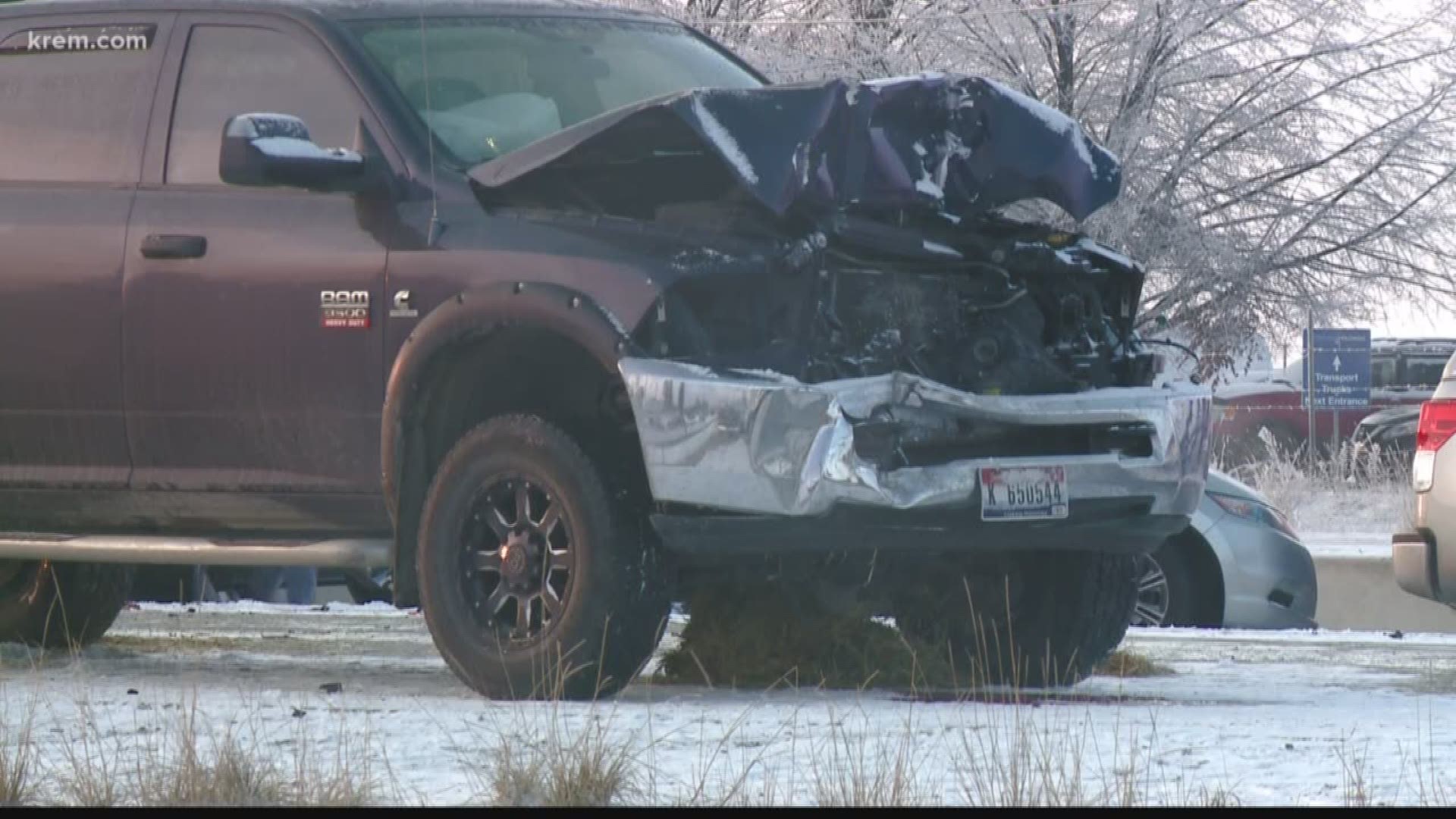SPOKANE, Wash. — Over 120 cars crashed on I-90 near the Geiger exit just west of Spokane on Nov. 26, 2019, causing the largest pileup in Spokane County history.
Some of those drivers were surprised that Washington State Patrol handed out tickets for driving too fast for conditions.
The area where the crashes occurred was briefly blasted by snow. The forecast for the day was mild and experts said the snow was hard to predict. Forecasters later admitted they too were surprised by what happened.
Dillon Grewell, who works at KREM 2, was one of the drivers that was cited. His car was towed and he got a $190 ticket for driving too fast for conditions.
"I was going under the speed limit and I had an incredibly safe following distance. And tons of people had safe following distance from me," Grewell said.
Troopers disagreed with that, saying he was going too fast given the snow and ice, as well as the wreck he was involved in.
Records show WSP handed out over 20 “too fast for conditions” tickets that day. It turns out these tickets are common all year round.
KREM 2 made a public record request to see how many of these tickets were given out from January 2019 to Dec. 4, 2019.
According to the records, WSP issued 760 “too fast for conditions” tickets across Spokane County. Half of those tickets were given to drivers on I-90. Others were given out on Highway 395, North Division Street and Highway 2.
Close to 40 percent of those violations were in February 2019, which was when Spokane saw a lot of snow. Just 10 percent of the tickets were issued in November.
It’s important to note that tickets were issued every month in 2019, not just in the winter. To that, WSP Trooper Jeff Sevigney points out that these citations aren’t always related to snow. Other weather factors could have been fog, rain or smoke. Winter months did have a higher ticket number than summer months.
Sevigney said the rules of the road are clear: Drivers must maintain control of their car and have to adjust their speed based on conditions. The weather can change rapidly, Sevigney agrees, but it’s still on the driver to act on that. Like other traffic laws, troopers said they want to keep you and other drivers safe and protect property.

